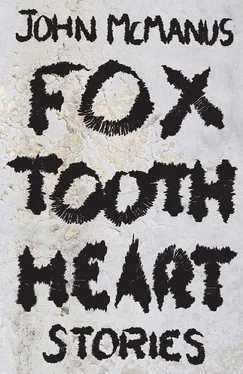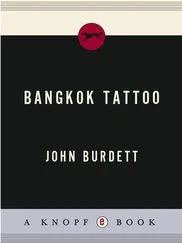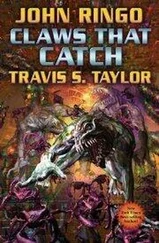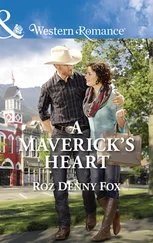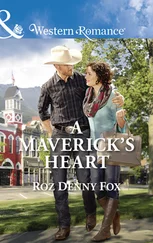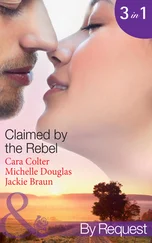John McManus - Fox Tooth Heart
Здесь есть возможность читать онлайн «John McManus - Fox Tooth Heart» весь текст электронной книги совершенно бесплатно (целиком полную версию без сокращений). В некоторых случаях можно слушать аудио, скачать через торрент в формате fb2 и присутствует краткое содержание. Жанр: Современная проза, на английском языке. Описание произведения, (предисловие) а так же отзывы посетителей доступны на портале библиотеки ЛибКат.
- Название:Fox Tooth Heart
- Автор:
- Жанр:
- Год:неизвестен
- ISBN:нет данных
- Рейтинг книги:3 / 5. Голосов: 1
-
Избранное:Добавить в избранное
- Отзывы:
-
Ваша оценка:
- 60
- 1
- 2
- 3
- 4
- 5
Fox Tooth Heart: краткое содержание, описание и аннотация
Предлагаем к чтению аннотацию, описание, краткое содержание или предисловие (зависит от того, что написал сам автор книги «Fox Tooth Heart»). Если вы не нашли необходимую информацию о книге — напишите в комментариях, мы постараемся отыскать её.
Fox Tooth Heart — читать онлайн бесплатно полную книгу (весь текст) целиком
Ниже представлен текст книги, разбитый по страницам. Система сохранения места последней прочитанной страницы, позволяет с удобством читать онлайн бесплатно книгу «Fox Tooth Heart», без необходимости каждый раз заново искать на чём Вы остановились. Поставьте закладку, и сможете в любой момент перейти на страницу, на которой закончили чтение.
Интервал:
Закладка:
BUGABOO
I FIRST MET MAX ONmy way home from the Gulp, a bottomless whirlpool in the Everglades where people go to commit suicide. This was in 2005. You have to hike six miles along a blackwater canal dug by Andrew Jackson’s slaves to a remote lake where you wade out until you’re sucked under to drown. Your body turns up in the Intracoastal Waterway. I don’t know the physics of it.
For hours I stood on the pier girding myself, even threw my phone into the water, but then I chickened out and didn’t squeeze between the rails. I walked back along Jackson Ditch. Twilight was fading when I reached my truck again, miles into the swamp on a road I hadn’t known was gated until I found myself locked in.
To the left the grade dropped off into the canal ditch. To the right stood a tarpaper shack whose fence blocked the path I might have driven across.
My only choice was to kill the engine, walk to the porch, and ring the bell. Almost immediately a middle-aged obese man opened the door holding a bottle of Johnnie Walker.
“I’m locked in,” I said to him.
“They shut that gate,” he replied, gesturing not toward it but to the night itself, which had closed in on the horizon.
“What can I do?”
“I’ll fetch the number.”
“My phone’s dead.”
“Use mine,” he said, beckoning me into his home. I followed him into a dim room where some hard drives blinked green under a long table full of computer monitors.
“You a programmer?”
“Work for the government. Name’s Max.”
“That’s my name too,” I said. “What branch?”
“Guess. And sit.”
After I lowered myself into a chair, his screens came alive with satellite feeds of cities, plains, and, in the far right, a pier poking into water. On it stood a guy who looked like a skillet from overhead, his arm stretching out from a circle of black hair.
It was me, right after I’d thrown my phone into the lake.
“Care to see a movie I did?” said the other Max, hitting play already as he spoke.
The video feed showed a girl plunging from the pier into neck-deep water. Her shimmering hair floated behind her as she waded toward the Gulp, which swallowed her, leaving only rings of waves.
Max increased the playback speed. Hand in hand a decrepit white-haired couple scurried to their deaths, followed by more girls.
“What is this place?”
“I spy for the CIA on other countries,” said Max, as a parade of suicides continued dying for us under clear skies. Now he summoned up feeds where nude men and women sunbathed on a beach, an orgy of men sucked each other off by moonlight, and two shoeless women trudged across a desert full of yellow flowers. I took those two for refugees until one bent over to suck on the other one’s nipple.
“Get a load of this,” said Max.
I expected another video, but he poured me a scotch.
“I don’t drink,” I said.
“How long?”
“Four and a half years.”
“And she still won’t take you back?”
“Who won’t?” I said, uneasy.
“The girl you love.” He pressed the drink into my hand.
I couldn’t help but close my fingers around it. “This stuff was ruining my life.”
“It ever drive you to kill yourself?”
“Worse,” I said, breathing in the peaty smell. Already I could taste smoke on the lips of some of the girls I’d kissed while drunk. I put the glass to my mouth. What dread I’d had was flushed out by the whiskey that flowed into me and felt right. “Worse like how?” Max said, a question it felt possible to address now that I had liquor in me, so I began by explaining that he was right about the girl, Livia, whom I’d met on Coulter Mountain in my third year of recovery.
The first year, when I got back into climbing, I didn’t plan on free-soloing. I just hated speaking to people while I was sober. To find belaying partners, you had to talk to them. As for rope-soloing, I had too much anxiety in those days to move so slowly. Slower I moved, the more my head twitched. So one day I just left my ropes and Grigri in the car. About halfway up a 5.11, I realized I wasn’t anxious. Clinging to the rock I felt supernaturally good, like I was part of the earth’s mechanics. At the summit I vowed to climb that way from then on. For two years, I did. By the time I hoisted myself onto the dome of Coulter Mountain with no gear but chalk, I’d forgotten I had ever been ill.
On top of that cliff I rolled over onto my back and looked around. Cross-legged toward the view sat a hot girl in a sports bra, drinking something green out of a Nalgene.
“Did you just free-solo this mountain?” she said.
“For Rock and Ice ,” I answered, which was true: Rock and Ice wanted a piece on how free-soloing helped keep me on the wagon.
“If you were writing about suicide, would you drown yourself?”
“No, I’d free-solo K2. Is that a margarita?”
“Yeah,” she said, offering it. I shook my head.
“Herradura Gold,” she said.
“Sounds delicious,” I said.
“Let me guess, free-climbing’s the next best thing to alcohol? A pure vertical dance? Like leaping on the moon?” She was quoting a climber named Brendan Timmins who had recently died doing it. “Think of his mother, think of his siblings.”
“Brendan was an only child.”
“Which makes his shit even more selfish.”
Without the endorphins lingering from my climb, I’d have been too timid to say, “Back when I chose to free-solo, I didn’t have you to live for.”
“So I’m saving your life?”
“Teach me how to use ropes.”
“You’re asking me out?”
“Feels like a date already.”
“Will you mention me in your article?”
“If you sign an exclusivity contract,” I said. We flirted like that for a while. It didn’t take me long to see her point: if I had died, I’d never have lowered her behind the summit’s cairn and kissed her. After a climb it’s so effortless to pick out what you want, and ask for it. I said so in my Rock and Ice essay, which Livia wept over. I wrote how, when I drank, I never trusted that I deserved anyone. Now that a smart woman who climbed fourteeners let me live with her, it felt like no small cozy miracle. I promised in print not to free-solo ever again. Livia is what comes of sober focus, I wrote, as if that along with my climbing had spawned a third, better accomplishment.
I couldn’t stay away from her. I would come sit in her photography classes, help with shoots. I took up trail running so we could do the Colorado Trail together. When my delusions started coming back, I hoped they were only a byproduct of love. Sometimes when I fell prey to daydreams where she was bludgeoned and I was the suspect, or where her brakes failed after rusting out from road salt that I’d forgotten to hose off from her truck’s underbelly, I drove to the canyon without my gear and scrambled up as far as the death line. Up there at that height, ropeless, I could quit fearing that Livia would die by my inadvertent hand. Perched on crumb-sized knobs I felt as if all history, plate tectonics, evolution, had conspired to bring me a peace I could tap into in secret, once or twice a week, until Livia finished her MFA and got a job offer from a Miami art school.
With no idea how it would feel, I told Livia I’d go anywhere. We moved into an apartment in Hialeah beside a sixteen-lane highway, five hundred miles south of the nearest hill. The temperature was always seventy indoors, one hundred outdoors. I found a job at a rock gym, where I taught kids how to tie knots and brooded my way into a full-on mood disorder.
It began with little things, like driving over a bump, then obsessing over the idea that the bump had been a person. I would scour the news for evidence of a hit-and-run. At the gym some guy would fall onto the mat, and visions of a criminal investigation would plague me. I grew scared to strap kids into their harnesses lest they accuse me of touching them. The sound of any siren suggested that Livia was dead and the cops were coming. The more unlikely the idea, the harder I obsessed.
Читать дальшеИнтервал:
Закладка:
Похожие книги на «Fox Tooth Heart»
Представляем Вашему вниманию похожие книги на «Fox Tooth Heart» списком для выбора. Мы отобрали схожую по названию и смыслу литературу в надежде предоставить читателям больше вариантов отыскать новые, интересные, ещё непрочитанные произведения.
Обсуждение, отзывы о книге «Fox Tooth Heart» и просто собственные мнения читателей. Оставьте ваши комментарии, напишите, что Вы думаете о произведении, его смысле или главных героях. Укажите что конкретно понравилось, а что нет, и почему Вы так считаете.
